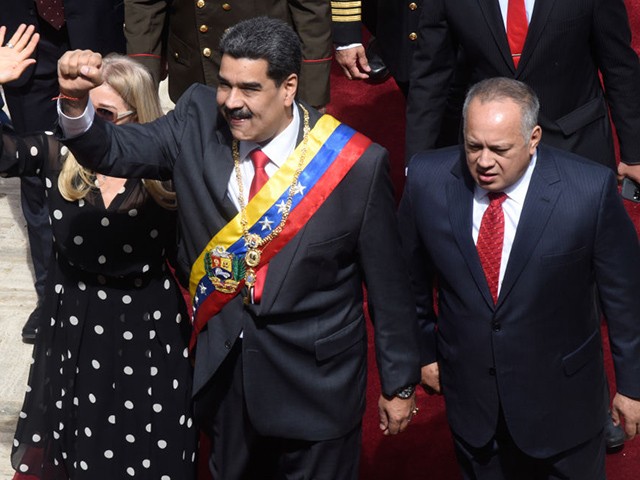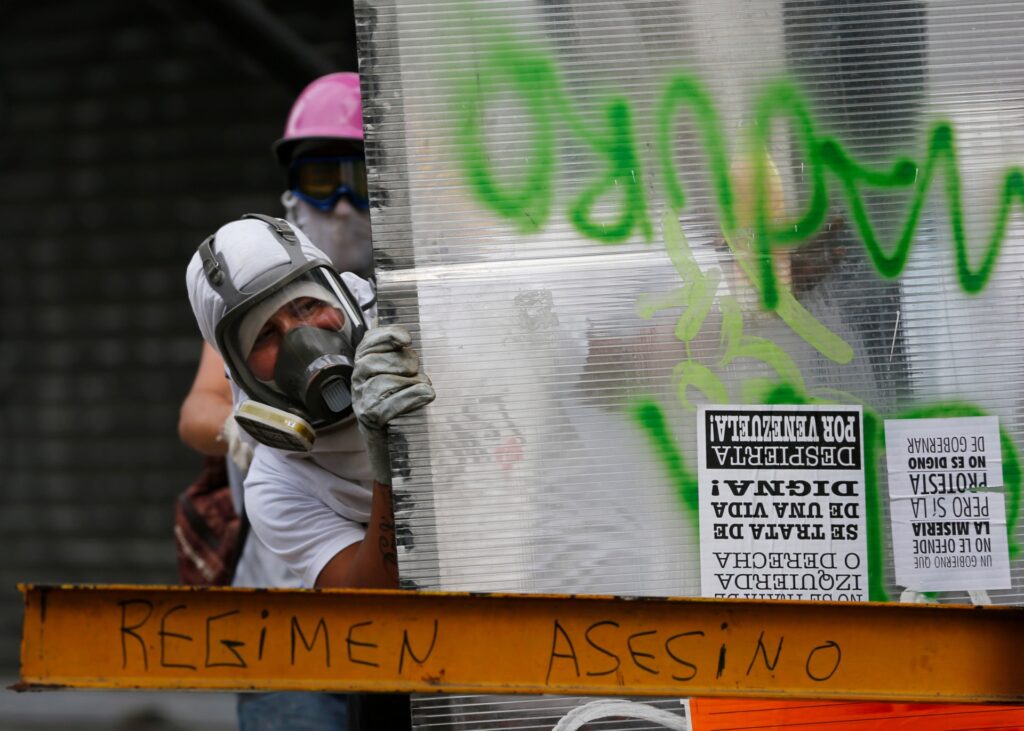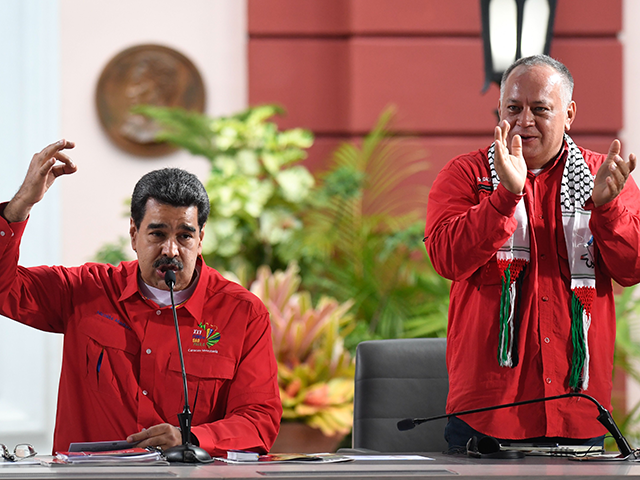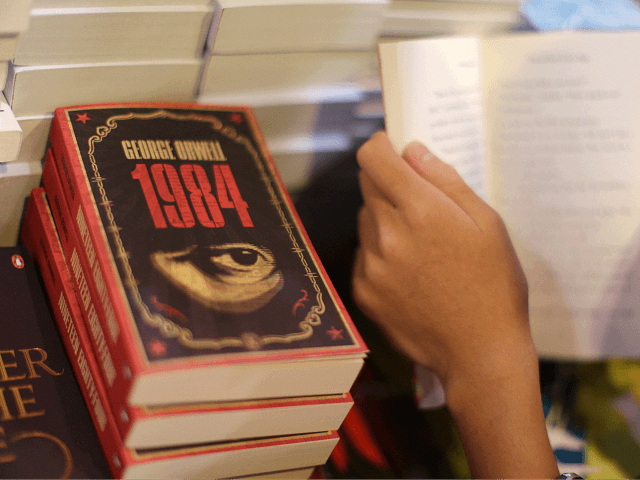CARACAS, Venezuela — Socialist dictator Nicolás Maduro announced the creation of a special national “peace” council and its subordinate citizen units on Wednesday evening that according to him will fight “violent plans” orchestrated by the “extreme right” against his regime.
Maduro, in a state media broadcast accompanied by high-ranking members of the socialist “revolution,” detailed that the regime’s new “Special Council for Peace” (CEPAZ) will be run by Diosdado Cabello, the vice president of the United Socialist Party of Venezuela (PSUV) and an alleged drug kingpin. Maduro credited Cabello with the idea and creation of the council.
The council will also count on the leadership of the regime’s interior minister, Remigio Ceballos, and authorities of the country’s police and military security agencies, all of which are controlled by the PSUV.
The socialist dictator explained that the Cabello-led council will be the “national articulating, building, and leading entity” for a large array of “Popular Units for Peace” (UPAZ), groups of civilians subordinated to the council that will be formed across some 46,000 communities in Venezuela to “defend the country” and the socialist revolution against alleged “extreme” right-wing plans, both domestic and foreign.
“I call on all of Venezuela to defend peace but, in particular, I call on our people to organize in a superior way to defend peace,” Maduro said. “There are plans against the peace of the people, there are plans to turn hatred into violence and we will not allow it — we cannot allow it.”

President of Venezuela Nicolas Maduro (C) gestures along with the First Lady Cilia Flores (L) and Constituent Assembly President Diosdado Cabello (R) as they arrive to the President’s annual address to the nation at the National Constituent Assembly on January 14, 2020, in Caracas, Venezuela. (Carolina Cabral/Getty Images)
Maduro detailed some of the organizational structure of the upcoming UPAZ units by explaining that “each community chief will form a team of 4, of all ages, which will be led by the head of the community, who will be in charge of planning and will ask each street chief to propose three compatriots to join the UPAZ.”
“This mechanism starts from today,” Maduro continued. “Every true revolution, as ours is, has to know how to renew itself, to know how to update itself, to move the fiber of popular wisdom. That is the formula for permanent victory!”
Maduro continued his explanation by stating that UPAZ units will be deployed in a progressive manner, in work centers, factories, companies, high schools, hospitals, mass transportation systems, electric and water facilities, and food and medicine storage centers. The upper “peace” council, led by Cabello’s “peace,” will also be in charge of coordinating UPAZ’s actions with the regime-controlled Bolivarian militia.
“All the UPAZs will be articulated with the peace quadrants [geo-located groups of people that serve the revolution]; that is going to be beautiful,” Maduro asserted. “Enough of hatred, perverse plans to fill Venezuela with violence … this right-wing [is] full of hatred and thirst for revenge, but the ultra-right wing has no life in this country. Among themselves they fail, they are deluded. Let them continue in that while we build consensus and paths for the people.”
According to Maduro, the Venezuelan “opposition” is allegedly attempting to “inoculate hate speech” and to incite guarimbas, a type of protest against the socialist regime throughout the past two decades that primarily consists of erecting barricades to block access to streets and roads.

Masked anti-government demonstrators take cover from tear gas fired by Bolivarian National Police using a plastic sheet at a barricade in Caracas, Venezuela, Tuesday, April 1, 2014. Calling them guarimbas, which Venezuelans associate with home base in a child’s game of hide-and-seek, President Nicolas Maduro has repeatedly cited the barricades as evidence that his opponents aren’t fit to govern. (Fernando Llano/AP)
“There are plans to attack the peace of the country,” Maduro asserted on Wednesday. “We are going to unite what we can unite to guarantee the peace of the people so that the extreme right does not come with its hatred and desire for revenge to attack the people.”
“So I call on the people to defend peace in your block, in your stairway, in your alley, in your community, in your court, in your school–defend peace,” he continued.
Maduro did not provide any evidence of alleged right-wing plots against his regime, nor did he provide any names of the so-called “ultra right-wing” people who, according to him, are conspiring against Venezuela.
In reality, a sheer majority of the Venezuelan establishment “opposition” is made up of center-left or leftist parties. Some of the most prominent “opposition” parties are longtime active members of the Socialist International.
“This is going to give great results for peace, tranquility, the functioning of society, and to disarticulate any plan,” Maduro asserted. “Enough of perverse plans, enough of hatred, enough of revenge, enough of covert plans to fill Venezuela with violence.”
Maduro has repeatedly made claims this year of the existence of alleged “violent plans” against the South American country, but has yet to provide evidence to substantiate his repeated claims.
Maduro’s soon-to-be-deployed UPAZ “peace” civilian units are reportedly in the same vein as 2018’s Network of Articulation and Sociopolitical Action (RAAS), a now-extinct group at the service of the socialist revolution made up of military personnel and PSUV sympathizers that sought to increase the Maduro regime’s social control of Venezuelans at a community level.
Non-government organizations denounced RAAS at the time as a mechanism to establish a “social and community network of denunciation where all its members are guardians of the revolutionary process, turning neighbors, workers and common citizens into watchmen, monitors and accusers of the private or public activities of any person,” much like the communist Castro regime’s Committees for the Defense of the Revolution (CDR) civilian spy network.
Christian K. Caruzo is a Venezuelan writer and documents life under socialism. You can follow him on Twitter here.


COMMENTS
Please let us know if you're having issues with commenting.